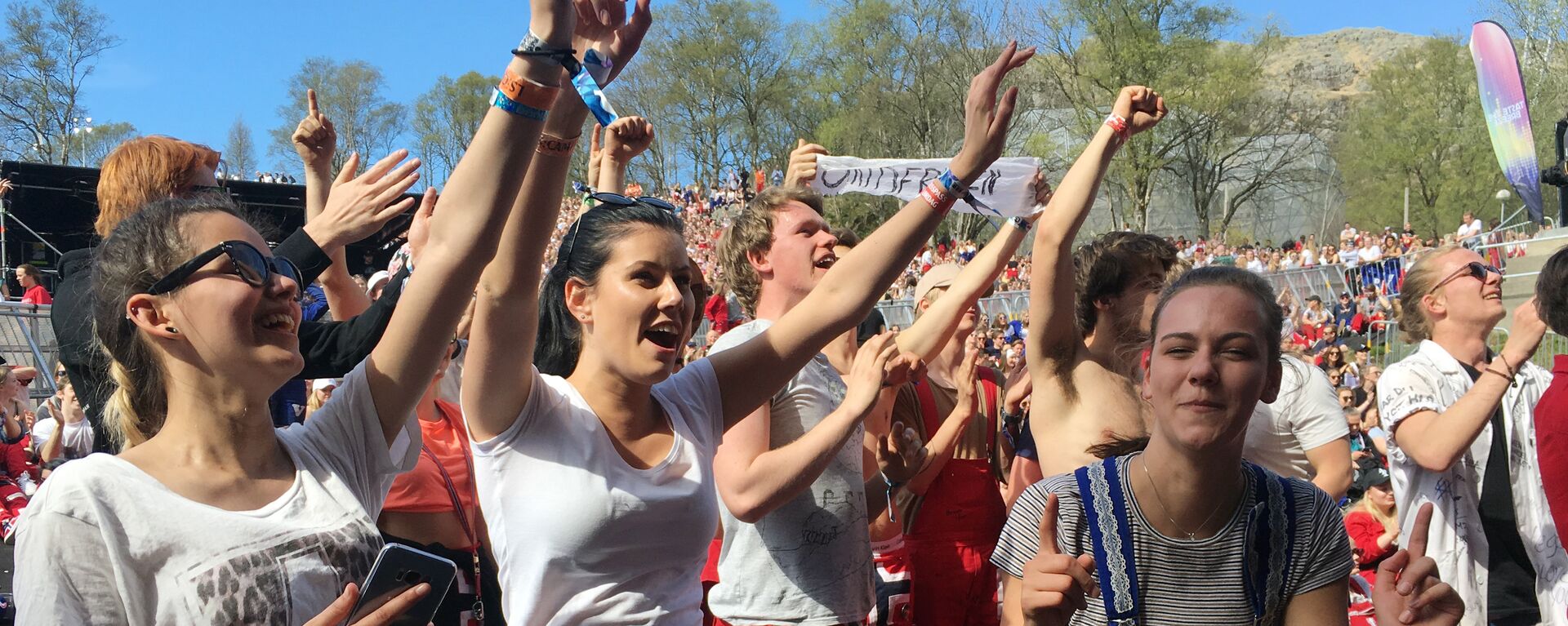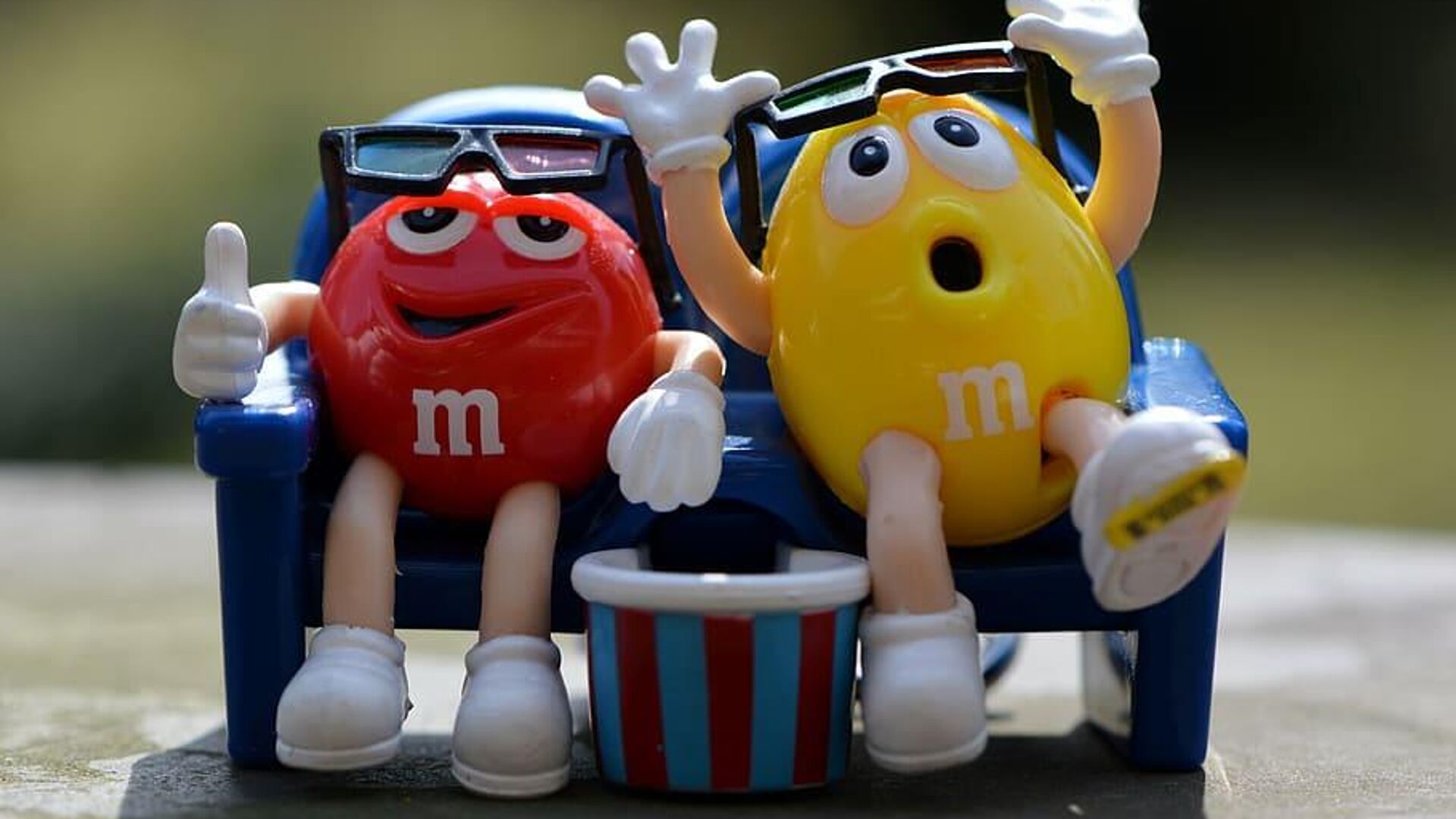https://sputnikglobe.com/20230123/beloved-mms-mascots-gnawed-to-death-amid-culture-wars-outrage-over-sexy-lesbian-candies-1106626521.html
Beloved M&M’s Mascots Gnawed to Death Amid Culture Wars Outrage Over Sexy Lesbian Candies
Beloved M&M’s Mascots Gnawed to Death Amid Culture Wars Outrage Over Sexy Lesbian Candies
Sputnik International
Confectionary giant Mars, Inc. has been using talking anthropomorphic button-shaped candies to advertise its popular M&M’s multi-colored treats since the 1950s.
2023-01-23T19:10+0000
2023-01-23T19:10+0000
2023-01-23T19:37+0000
viral
candy
culture war
outrage
mars inc
https://cdn1.img.sputnikglobe.com/img/07e6/01/15/1092420005_0:47:910:559_1920x0_80_0_0_369ed4e9418432ef70adf952bab2c681.jpg
Mars announced Monday that it would be taking an “indefinite pause” from using its M&M’s spokescandies, replacing them with former Saturday Night Live cast member Maya Rudloph.The marketing shapeup comes after the company’s tinkering with its mascots to make them “more inclusive” sparked outrage in some corners, as some took issue with the changes –such as making the Green M&M less “sexy” by replacing her high-heel boots and provocative looks and poses with a plainer Green wearing white sneakers.Others, such as Fox News host Tucker Carlson, took issue with the return of “woke M&M’s,” and suggested that Mars may have turned Green's character into a “lesbian.”A female Purple M&M was introduced last fall to symbolize “acceptance and inclusivity.” The company also dropped the Mr. and Ms. prefixes to the candies’ names, again for inclusivity’s sake.Earlier this month, Mars also launched a special ‘women everywhere flipping the status quo’ campaign ahead of International Women’s Women’s Day featuring its three female M&M’s – Green, Brown and Purple on new “inspirational packaging.” “These debut M&M’s packs come as the next chapter for Mars’ newest M&M’s character, Purple, featuring her not only on packaging, but in packaging as well, alongside green and brown candies.”It’s unclear what the “indefinite pause” in the use of the characters will mean for the company’s Super Bowl plans. The company recently promised that the M&M’s were planning a “legendary return” to the screen in Super Bowl LVII ads in February.It’s entirely possible that the drama is just a marketing ploy. Mars Inc. is well known for taking pleasure in riding waves of culture war outrage for almost a decade, with a 2015 tweet showing Green and Brown “spending time together” without the male Red and Yellow M&M’s and holding hands had people talking for weeks.Dozens of American brands have undergone a revamp or been scrapped completely in recent years amid efforts by corporations not to offend customers’ sensibilities, with Planters killing off Mr. Peanut, and Quaker Oats erasing its Aunt Jemima pancake syrup brand –which featured a smiling black women, whose name some activists said sounded like a term for enslaved peoples. Land O’Lakes removed its Native American mascot from its products in 2020, citing cultural sensitivities.
https://sputnikglobe.com/20221221/stanford-locks-its-harmful-language-guide-amid-backlash-over-call-to-ditch-term-american-1105662791.html
https://sputnikglobe.com/20221227/self-esteem-in-your-teens-defines-how-woke-you-become--study-1105808451.html
Sputnik International
feedback@sputniknews.com
+74956456601
MIA „Rosiya Segodnya“
2023
News
en_EN
Sputnik International
feedback@sputniknews.com
+74956456601
MIA „Rosiya Segodnya“
Sputnik International
feedback@sputniknews.com
+74956456601
MIA „Rosiya Segodnya“
m&m's, candies, culture wars, marketing, advertisement
m&m's, candies, culture wars, marketing, advertisement
Beloved M&M’s Mascots Gnawed to Death Amid Culture Wars Outrage Over Sexy Lesbian Candies
19:10 GMT 23.01.2023 (Updated: 19:37 GMT 23.01.2023) Confectionary giant Mars, Inc. has been using talking anthropomorphic button-shaped candies to advertise its popular M&M’s multi-colored treats since the 1950s. Now, they’ve apparently fallen victim to the tiresome culture wars between liberals and conservatives.
Mars announced Monday that it would be taking an
“indefinite pause” from using its M&M’s spokescandies, replacing them with former Saturday Night Live cast member Maya Rudloph.
“America, let’s talk. In the last year, we’ve made some changes to our beloved spokescandies. We weren’t sure if anyone would even notice. And we definitely didn’t think it would break the internet. But now we get it – even a candy’s shoes can be polarizing. Which was the last thing M&M’s wanted since we’re all about bringing people together,” the company said in a press statement explaining the decision.
The marketing shapeup comes after the company’s tinkering with its mascots to make them “more inclusive” sparked outrage in some corners, as some took issue with the changes –such as making the
Green M&M less “sexy” by replacing her high-heel boots and provocative looks and poses with a plainer Green wearing white sneakers.
Others, such as Fox News host Tucker Carlson, took issue with the return of “woke M&M’s,” and suggested that Mars may have turned Green's character into a
“lesbian.”A female Purple M&M was introduced last fall to symbolize “acceptance and inclusivity.” The company also dropped the Mr. and Ms. prefixes to the candies’ names, again for inclusivity’s sake.

21 December 2022, 09:41 GMT
Earlier this month, Mars also
launched a special ‘women everywhere flipping the status quo’ campaign ahead of International Women’s Women’s Day featuring its three female M&M’s – Green, Brown and Purple on new “inspirational packaging.” “These debut M&M’s packs come as the next chapter for Mars’ newest M&M’s character, Purple, featuring her not only on packaging, but in packaging as well, alongside green and brown candies.”
It’s unclear what the “indefinite pause” in the use of the characters will mean for the company’s Super Bowl plans. The company recently
promised that the M&M’s were planning a “legendary return” to the screen in Super Bowl LVII ads in February.
It’s entirely possible that the drama is just a marketing ploy. Mars Inc. is well known for taking pleasure in riding waves of culture war outrage for almost a decade, with a 2015 tweet showing Green and Brown “spending time together” without the male Red and Yellow M&M’s and holding hands had people talking for weeks. Dozens of American brands have undergone a revamp or been scrapped completely in recent years amid efforts by corporations not to offend customers’ sensibilities, with Planters killing off Mr. Peanut, and Quaker Oats erasing its Aunt Jemima pancake syrup brand –which featured a smiling black women, whose name some activists said sounded like a term for enslaved peoples. Land O’Lakes removed its Native American mascot from its products in 2020, citing cultural sensitivities.

27 December 2022, 05:07 GMT





